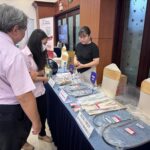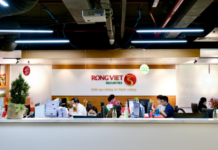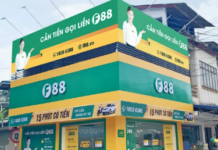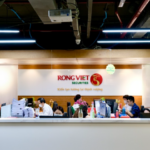On August 26, the Vietnam Chamber of Commerce and Industry (VCCI), in collaboration with TAT Law Firm, organized a forum on “Improving Intellectual Property Policies – A Driving Force for Innovative Enterprises.”
At the event, Mr. Nguyen Thanh Nam, Deputy Director of the Department of Market Management and Development (Ministry of Industry and Trade), shared the challenges in combating counterfeiting and intellectual property rights (IPR) infringement.
Mr. Nam cited the example of Saigon Square in Ben Thanh Ward, Ho Chi Minh City, which was once listed by the US Trade Representative as a “notorious market” for IPR infringement. According to Prime Minister’s Official Dispatch No. 65/CD-TTg on intensifying the fight against smuggling, trade fraud, and counterfeiting, authorities have conducted multiple inspections and raids at this location. “We see immediate results within a day or two, but after a week, everything goes back to the way it was. They have people guarding all four entrances, and even when we tried to disguise ourselves as motorbike taxi drivers, their cameras identified us, and all the shops would shut down immediately,” he recounted.
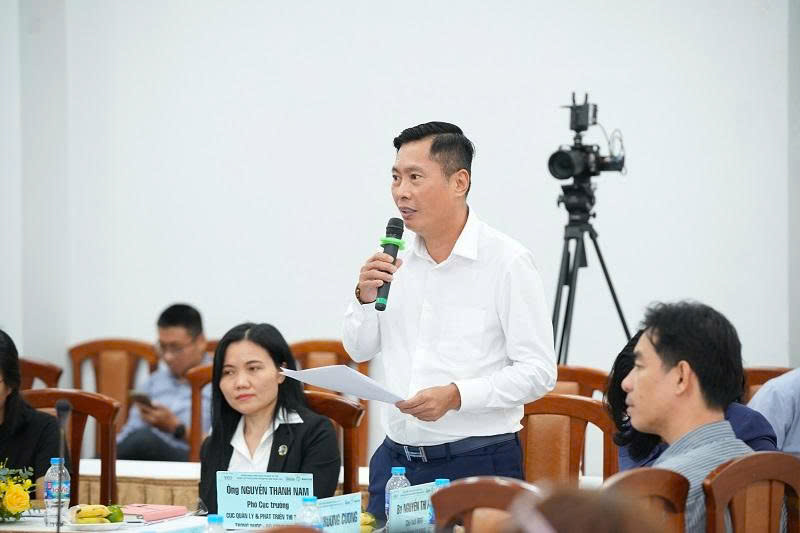
Mr. Nguyen Thanh Nam, Deputy Director of the Department of Market Management and Development, speaks at the forum.
Using the Saigon Square story as a backdrop, Mr. Nam emphasized that in the era of integration and the digital economy, IPR is not just a tool to protect creativity but also a foundation for enterprises to innovate and enhance the country’s competitiveness. However, IPR violations remain complex and prevalent. Specifically, in the first six months of 2025, over 50,419 cases of smuggling, counterfeiting, and IPR infringement, worth thousands of billions of VND, were handled nationwide.
In the field of trademarks alone, there were 1,430 cases with fines totaling over 18 billion VND (an increase of nearly 30% compared to the same period last year). Infringements are becoming more sophisticated and are shifting towards e-commerce and social media, while businesses still lack awareness and effective tools for product traceability.
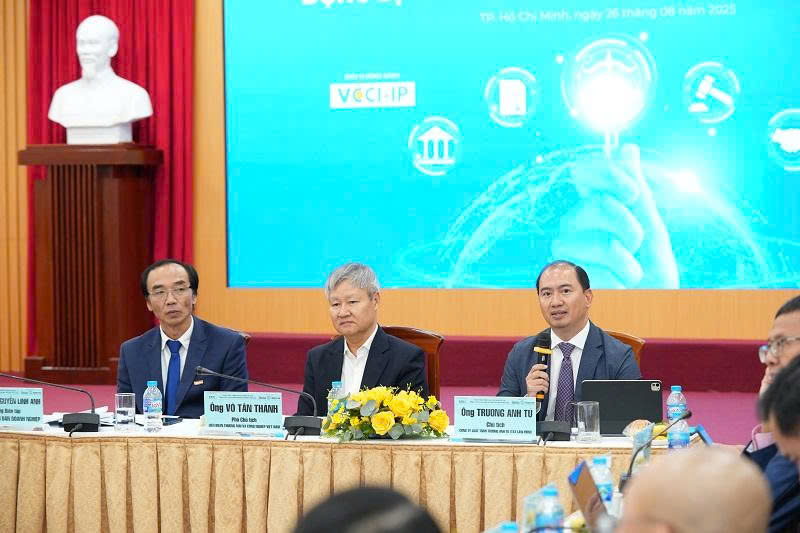
Forum participants.
According to Mr. Nam, improving IPR policies should not solely depend on the state. Businesses themselves must take the initiative to protect their interests by complying with the law, ensuring transparent production and business practices, and investing in traceability solutions. Simultaneously, consumers need to become “smart consumers” who choose genuine products and do not support counterfeits.
“Prevention is Better Than Cure”
At the forum, Binh Minh Plastic Joint Stock Company shared its story of building a national brand for over 48 years, only to find itself grappling with rampant counterfeiting and imitation. From u-PVC pipes, fittings, and adhesives to logos and packaging designs, their products have been copied almost identically, with only slight alterations in some characters. In some cases, counterfeiters even registered similar business names to associate themselves with the Binh Minh brand when approaching dealers and contractors. The company has received complaints from customers about the “poor quality” of Binh Minh products, only to discover that these were counterfeits, often discovered only after they were buried underground and malfunctioned. Consumers remember the name “Binh Minh Plastic,” but the reputation of the brand suffers.
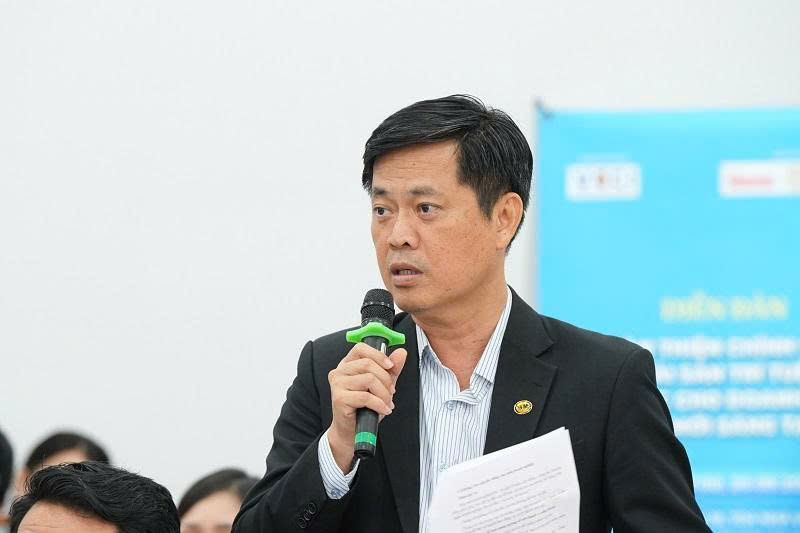
Representative of Binh Minh Plastic Joint Stock Company at the forum.
The company representative candidly shared, “We may have the law on our side, but the law may not always protect us. We find ourselves in a situation where ‘prevention is better than cure.'”
To protect itself, the company established a specialized task force in 2023 to handle cases from inspection and complaint filing to litigation in the Supreme People’s Court and Supreme People’s Procuracy. However, this journey has often hit dead ends.
“Although forensic conclusions indicate signs of infringement, they cannot be used to defend the company effectively. Some inspections and audits fail to identify violations, allowing the perpetrators to miraculously evade punishment,” the representative explained.
Based on their experience, the company proposed the following recommendations: establishing specialized IPR courts with judges well-versed in the field, expanding independent forensic mechanisms to end long-standing monopolies, introducing standards for calculating non-material losses such as brand reputation, and strengthening oversight of enforcement agencies to ensure that competent and courageous individuals guard the “gateway” of national IPR protection.
Unveiling the Counterfeit: Over 50,000 Fake Red Bull Cans Uncovered
The Market Management Force has recently uncovered over 50,000 cans of a beverage named “Bò Húc”, which bears a striking resemblance to the well-known energy drink, Red Bull. This discovery raises concerns about potential trademark infringement, as the similarities between the two products are undeniable. With a name that translates to “Bull Charge”, it is clear that this beverage aims to capitalize on the reputation and success of Red Bull.

